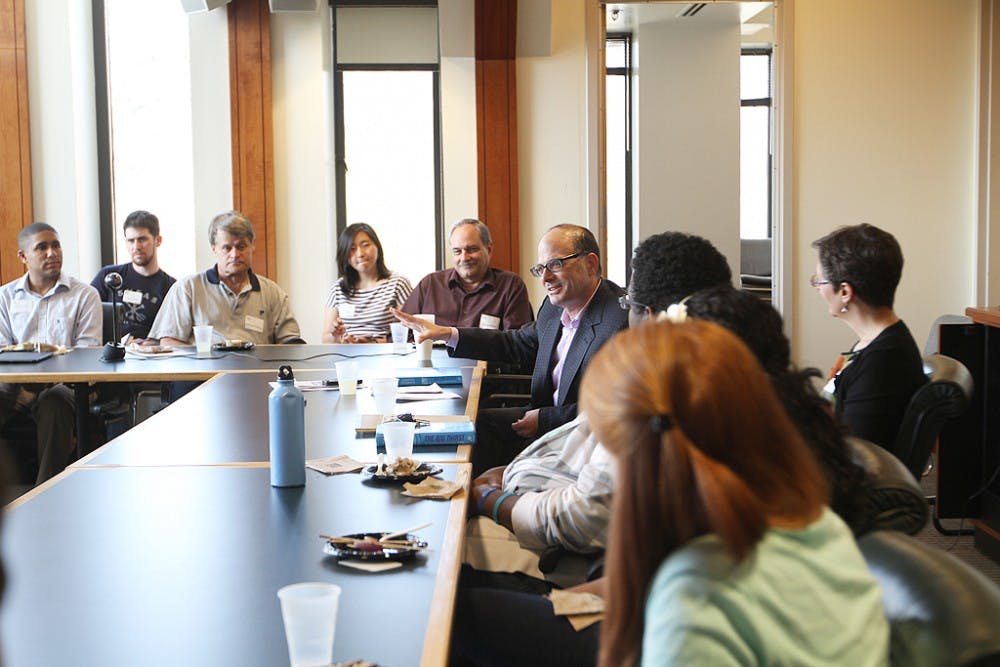The days of water, water everywhere are numbered, journalist Charles Fishman said Monday.
Soon, water will no longer be able to be safe, unlimited and free at the same time, said Fishman, who has been a reporter for The Washington Post, The Orlando Sentinel and The News and Observer in Raleigh, N.C. In his talk at the Sanford School of Public Policy, Fishman expanded on his latest book, “The Big Thirst: The Secret Life and Turbulent Future of Water,” in which he explores society’s relationship with water—traditionally seen as an abundant and free natural resource.
“There is a revolution coming in the world of water,” Fishman said. “The economics of water are all screwed up.”
In his discussion, Fishman addressed how the world of water is changing, noting the considerable implications for society and his personal experiences researching the matter. He spoke of experiences ranging between standing at the bottom of a half-million gallon sewage tank and carrying water on his head for 3 kilometers with a group of Indian villagers.
Fishman also noted the distinction between smart and wasteful approaches to water. The average American uses 99 gallons of water daily for simple activities like washing clothes, bathing and cooking. Fishman said that all of these uses, such as toilet-flushing, do not require perfectly clean water. Simple changes, such as not running water at full force, can help save water.
“Free is the wrong price for water,” Fishman said.
When something is virtually free, it sends the signal that water is unlimited and has no value, he said. If water costs more, people would be more conservative with their consumption. Revenue could also be used to modernize and support water systems and protect the environmental sources of water, like aquifers and rivers.
Fishman noted that water is local, which goes against conventions that there is a global water process. This means that if Durham has a water shortage, there is no means of getting water to the community from other cities, he said. Similarly, once a local water problem is solved, other communities’ potential mishandling of water will not affect the local source.
Issues such as unemployment make prioritizing water conservation difficult. Fishman said he believes people are taking water for granted.
“It’s a value problem,” senior Kathryn Lowry. who attended the discussion, said. “It’s been so abundant. Reading the book made me realize this is a problem we need to face and do something about.”
Alma Blount, director of the Hart Leadership Program and lecturer in public policy, invited Fishman to speak in her public policy course titled, “Leadership, Policy and Change.” The course focuses on adaptive leadership—mobilizing people to confront complex, systemic problems that are pervasive and seemingly unsolvable.
“‘The Big Thirst’ challenges us to change our relationship to water and says we need to rediscover water’s true value,” Blount said. “The core message of the book is hopeful. Many water problems are solvable, but we have to conjure the will, imagination and leadership guts to address them.”
Get The Chronicle straight to your inbox
Signup for our weekly newsletter. Cancel at any time.

